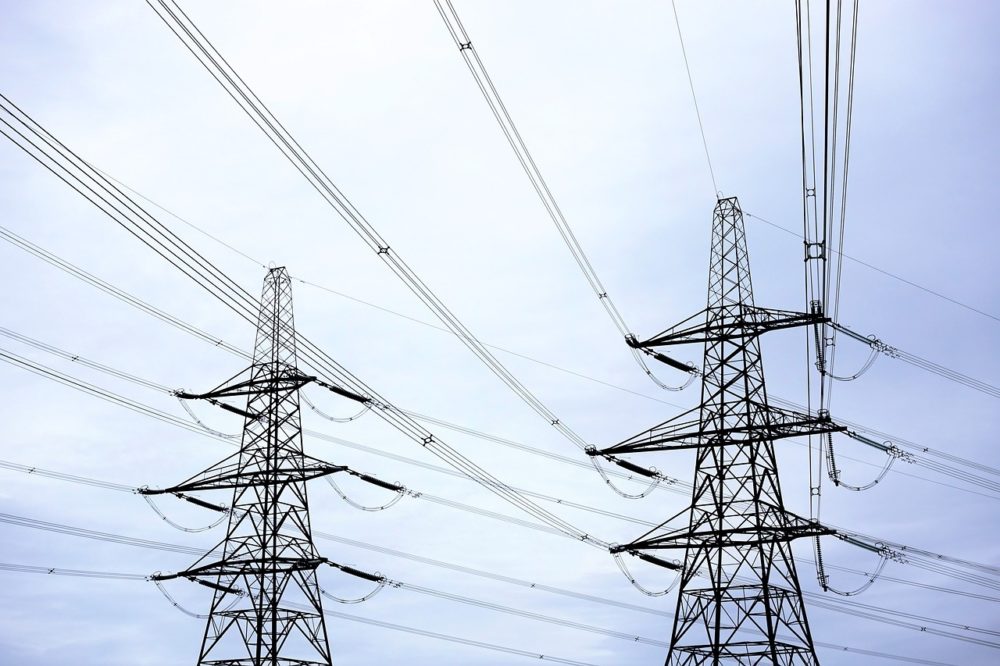UK must build power infrastructure including pylons ‘at speed’, expert warns

The UK will need to build more pylons, including in areas where people do not want them, communities have been warned.
Emma Pinchbeck, who has been appointed as the new chief executive of the independent advisory Climate Change Committee but was speaking in her current role as head of industry body Energy UK, said the push for clean energy was the best way to insulate the UK against price shocks.
She pointed to estimates that another price shock, similar to that caused by Russia’s invasion of Ukraine, in the 2030s would cost the UK £50 billion – the equivalent of wiping out the investment in Britain announced at this week’s Government investment summit.
Carbon cutting targets
And she said the UK would have to build more electricity infrastructure, for the electric heating and cars that will need to be rolled out to meet carbon cutting targets, as well as things such as data centres and new housing estates.
Speaking to the UK100 network of local leaders on net zero’s clean energy superpower summit at London’s County Hall, she said there was a need to build “at speed”.
She added: “We need to build around five times the amount of infrastructure over the next seven years as we have built in the previous three decades.
“We need to grow the power sector two to three times by 2050 and that is because we’re expecting consumers to be using electric vehicles, to be using heat pumps.
“We’re expecting data centres to use a huge amount of electricity, all these new housing estates, they require power connections.
“So we need to grow the amount of electricity that we generate as well as make it clean.”
And she said public engagement would be key.
‘Bad news’
“We’re going to build a lot of stuff,” she said, joking: “Historically that goes down very well with local communities.”
“I have some bad news. We are going to need to build some pylons. We are going to have build some pylons in places where people don’t want pylons.
“We’re going to need to put them in the right places, of course. We’re going to need to minimise the amount of building we do, being as efficient as possible.
“We’re going to need to think about community benefits because the fact is that some communities will host more of this construction than others.”
Addressing local leaders in the room, she said it is “critical to have this conversation in your communities”, talking them through the benefits that could be available, like community benefit funds, local ownership, money off energy bills.
Economic imperative
Ms Pinchbeck welcomed the new Labour Government’s focus on delivering clean energy by 2030, saying that it had an economic imperative but also broader economic security, reducing the UK’s dependence on gas imports that added so much money to bills through the energy crisis.
She said the UK was a “price taker” in the market, and the only response in future was to get gas demand down.
She also said that delivering net zero – the UK’s legally binding goal to cut greenhouse gas emissions to zero overall by 2050 – would require more than a switch to clean power and wanted to hear more from the Government on decarbonising heat and transport.
She said that was about “bringing home the benefits of low carbon energy technologies to householders in their communities and in their homes”.
And she said: “As well as working out how we bring those technologies to people, we have to work out a way to do it fairly and at least cost across society to make sure that everyone benefits at every level, national, regionally and in homes from the clean energy transition but also from the delivery of net zero that’s coming.”
Support our Nation today
For the price of a cup of coffee a month you can help us create an independent, not-for-profit, national news service for the people of Wales, by the people of Wales.





Maybe try the electricity T-pylons like the ones used near the M5 in Somerset.
I thought I was reading a Rupert the Bear book then…
Don’t have a problem with pylons. Want electric, you need to transport it. It doesnt travel around the UK in buckets.
I have a sense of dred when the word pylon and Wales is mentioned. Will those in London put these monstrosities in the Cotswolds, Cornwall, New Forest and other designated areas of outstanding beauty. No! Need I say more. What will occur is hundreds of pylons stretching over miles of once stunning Welsh countryside connecting those four mini-nuclear power stations announced by UK Labour recently blighting Wales to power cities in England like our Welsh water quenches its thirst. They get all the benefits while those within those areas blighted languish on benefits Remember, Whitehall has a long history of… Read more »
There are no wind turbines nor pylons on the Downs of Kent or Sussex. The extra demand is there to feed London. There’s also a just commissioned nuclear site at Dungeness already wired into the grid going unused. Why desecrate and exploit Wales for a problem not of our making?
follow the money
Put power lines underground they will be more resilient than pylons.
I imaging the repair times are far greater u/g as well.